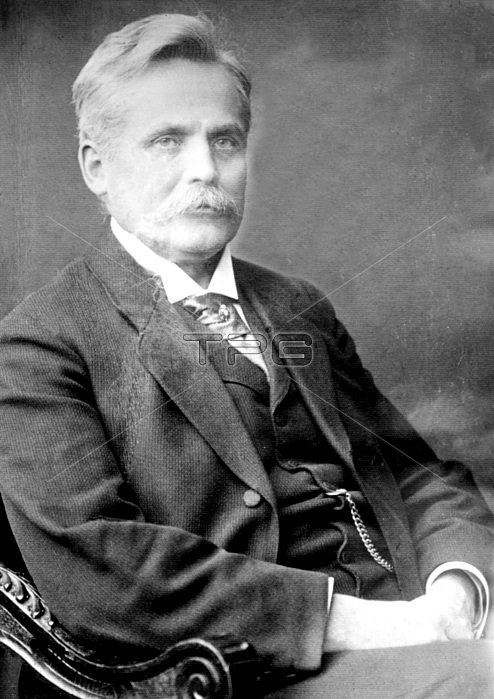
Wilhelm Carl Werner Otto Fritz Franz Wien (January 13, 1864 - August 30, 1928) was a German physicist who, in 1893, used theories about heat and electromagnetism to deduce Wien's displacement law, which calculates the emission of a blackbody at any temperature from the emission at any one reference temperature. He also formulated an expression for the black-body radiation which is correct in the photon-gas limit. His arguments were based on the notion of adiabatic invariance, and were instrumental for the formulation of quantum mechanics. While studying streams of ionized gas, Wien, in 1898, identified a positive particle equal in mass to the hydrogen atom. Wien, with this work, laid the foundation of mass spectrometry. J.J. Thomson refined Wien's apparatus and conducted further experiments in 1913 then, after work by Ernest Rutherford in 1919, Wien's particle was accepted and named the proton. Wien received the 1911 Nobel Prize for his work on heat radiation. He died in 1928 at the age of 64.
| px | px | dpi | = | cm | x | cm | = | MB |
Details
Creative#:
TOP22161719
Source:
達志影像
Authorization Type:
RM
Release Information:
須由TPG 完整授權
Model Release:
No
Property Release:
No
Right to Privacy:
No
Same folder images:

 Loading
Loading